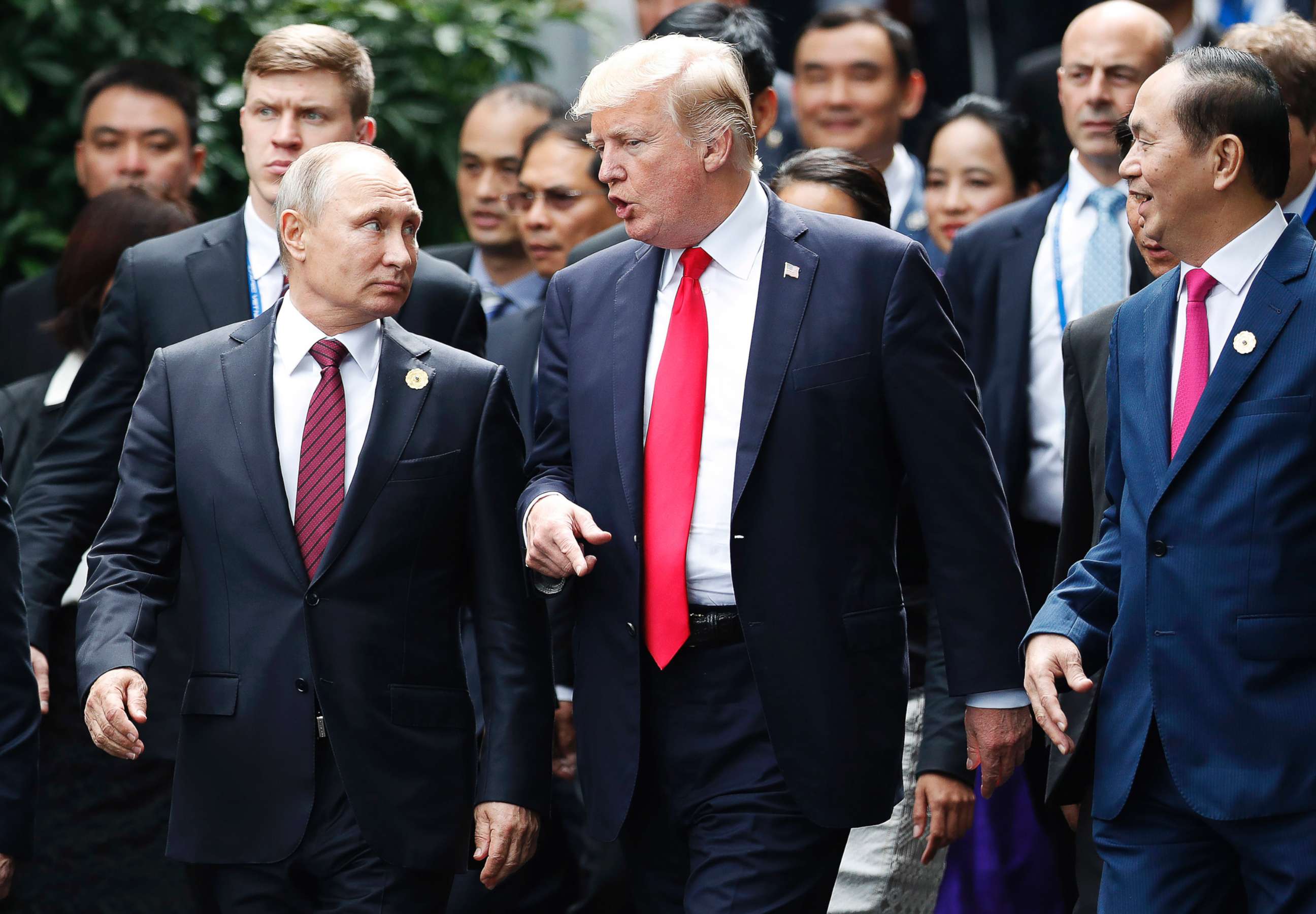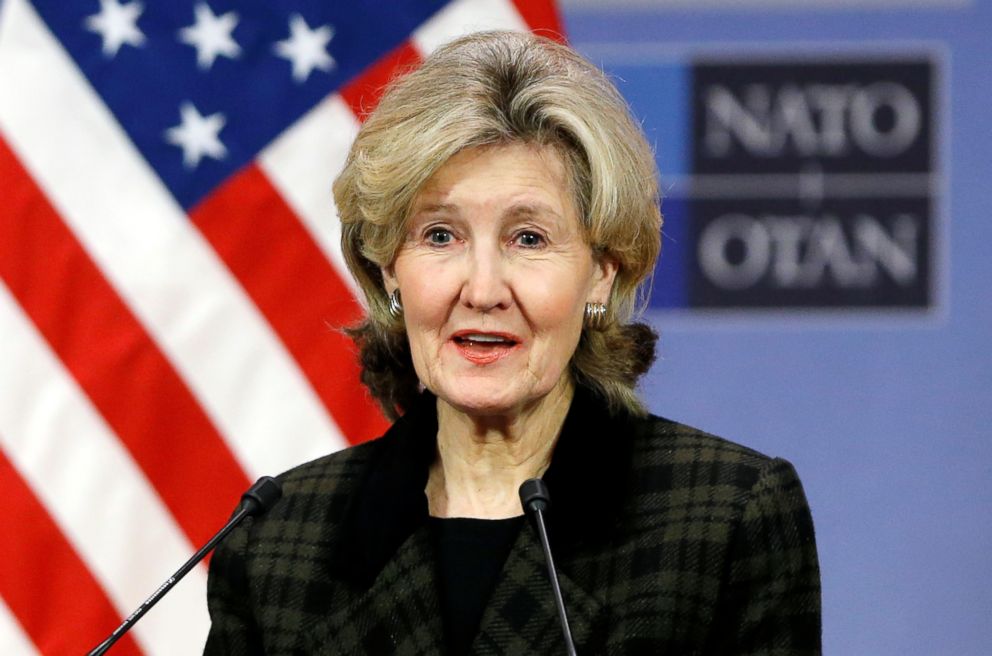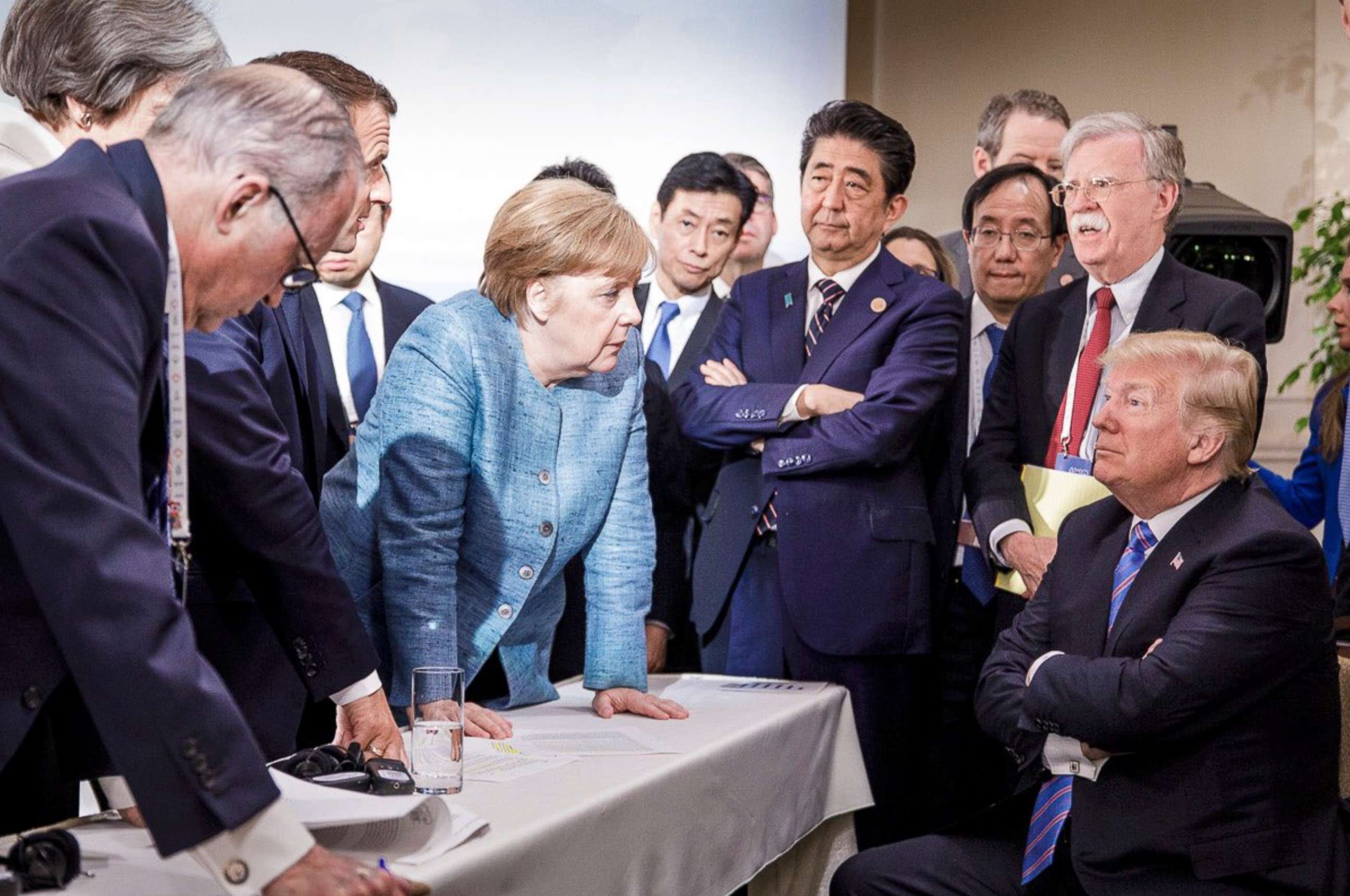Distance between Trump and allies grows ahead of NATO summit
A Trump-Putin meeting follows on the heels of the Brussels summit.
President Donald Trump heads to Brussels Tuesday to meet with allies at the NATO summit.
But this year, the distance across the Atlantic seems even wider as Trump has criticized European member countries over defense spending and plans to meet with the leader of the alliance's greatest threat, Russian President Vladimir Putin.
Since the Cold War era, NATO, an alliance of 29 countries, has worked as a military collective aimed at strengthening North Atlantic defense. Member countries contribute part of their wealth toward defense spending -- but Trump says that recently, allies aren’t paying their fair share.
His public threats and scolding have allies concerned that Trump, who has questioned the value of NATO, isn’t committed to their common cause.
“I’m going to tell NATO, ‘You got to start paying your bills,’” Trump said at a rally last week in Montana. “We're the schmucks paying for the whole thing.”

From tweets to rants at political rallies, Trump has made his grievances about member countries’ defense spending known. NATO countries made a commitment in 2014 to spend 2 percent of their annual gross domestic product on defense spending, with the goal of reaching that number by 2024.
But it’s not a binding legal commitment.
As of June, only four member countries had met that 2 percent spending goal: the U.K., the United States, Greece, Estonia, Poland and Romania. The United States, which spent $685.9 billion on defense in 2017, currently makes up 51.1 percent of NATO’s combined GDP.
Trump is expected to hammer allies about their defense purses this week at NATO. On Monday he signaled his message for the summit on Twitter: “The United States is spending far more on NATO than any other Country. This is not fair, nor is it acceptable,” Trump tweeted. “While these countries have been increasing their contributions since I took office, they must do much more.”
But experts say the United States cannot force any allies into spending more, no matter how much the president balks.
“I think the president has a fundamental misunderstanding of the alliance,” Heather Conley, director of the Europe Program at the Center for Strategic and International Studies, a Washington think tank, told ABC News.
“It’s not dues like a country club. Every country makes a contribution both to direct costs of the alliance and indirect costs like forces and personnel and equipment.”
At last year's NATO visit, Trump did not reaffirm his commitment to Article 5 of the NATO treaty -- which states that an attack on one member is an attack on all –- leading to nervousness from allies who were looking for reassurance after Trump mused he could make the United States’ commitment to Article 5 conditional on whether or not a country made its defense payments.
Despite Trump’s complaints, U.S. Ambassador to NATO Kay Bailey Hutchison assured the overall theme of the summit is “NATO's strength and unity.”

"I want to emphasize here that everyone in our alliance has the same goal, and that is a strong deterrent; an alliance that is unified that can face any threats that any one of our 29 members might face," Hutchison said.
Trump’s visit to NATO comes at a time of political turmoil across Europe, with British Prime Minister Theresa May facing fallout for her “soft” plan to exit the European Union, and German chancellor Angela Merkel at risk of losing power as she faces domestic tensions over migration policy. Similar tensions across Europe have led to an emergence of nationalist parties and leaders like Hungarian Prime Minister Viktor Orban, Chancellor of Austria Sebastian Kurz, and Italian Interior Minister Matteo Salvini.
A weakened NATO alliance could open up a power vacuum Putin would be eager to fill, experts say.
“NATO is supposed to be about collective defense, collective security, the idea that if we’re all contributing a bit more to our defense we’re all a bit safer,” Nina Jankowicz, a Russia expert at the Wilson Center, said. “And not only that it’s a community of democracies, and we have three members at least, depending on how you look at it, who have had issues with democratic backsliding recently.”
Looming over the entire summit is Russian aggression in Eastern Europe and election meddling. Hutchison said Russian deterrence would be a major focus at this year’s summit. And with Trump meeting Putin on neutral ground in Helsinki, Finland, for a high stakes meeting on the last day of his four-country trip, experts say allies will likely try to prime Trump for his talks.
“The allies are going to inform Trump on Putin just as much as his advisers are going to,” Jankowicz said. “Those of the leaders that have negotiated with Putin or have experience with him are going to have a hard sell to make about why our defense spending commitments in Europe are important and why the United States should continue to have troops in Poland on a rotational basis, for example.”

Some allies are also concerned they may experience G7 part two -- they fear a repeat of Trump chastising allies at the G7 and then traveling on to Singapore for a friendly meet and greet with an adversary, North Korea’s Kim Jong Un. All eyes will be on mercurial and unpredictable Trump: European allies will be looking to see if Trump snubs them at NATO, only to praise Putin in Finland.
"They’re going ‘Will President Trump be prepared, you know, President Putin is KGB and this and that,'" Trump said at a rally last week in Montana. "You know what? Putin’s fine. He’s fine. We’re all fine. We’re people. Will I be prepared? Totally prepared. I’ve been preparing for this stuff my whole life."
“We won’t know if the NATO summit is successful until after the Helsinki summit,” Conley said. “Because if there is a change in the president’s policy approach to Russia, particularly with Ukraine, that impacts the entire NATO alliance.”




